
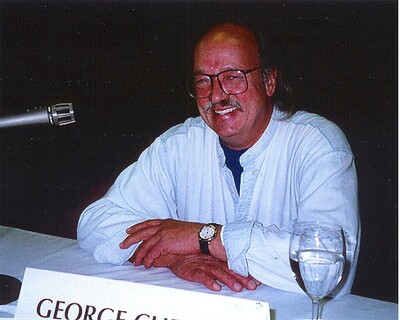 1) Most of your books take place in what my friends
and I like to call the "Mongo-verse", which would encompass the
Veil books, the Chant books as well as the books with Mongo and Garth. What
prompted the idea behind a dwarf detective with such a diverse background?
1) Most of your books take place in what my friends
and I like to call the "Mongo-verse", which would encompass the
Veil books, the Chant books as well as the books with Mongo and Garth. What
prompted the idea behind a dwarf detective with such a diverse background?
1. I've written extensively on the birth of Mongo, including in the
introduction to In the House of Secret Enemies. To summarize: Back in
the 70's,
when I had just started to publish short stories, I began searching for
a series character I could use in more than one story. There were a lot
of "handicapped" detectives on TV (Ironsides, Longstreet, etc.).
Out of nowhere, believing that it is good for the soul to have one insane
idea a day, whether you need it or not, the notion of a dwarf private
detective came to me. The thought certainly amused me, but I considered
such a character bizarre and absurd, unworkable and unpublishable, and
thus a waste of time to spend and length of time trying to develop it.
I kept searching, but the damn dwarf just wouldn't go away. Finally, in
an attempt to "exorcise" the idea, I started a short story (really
a novelette, since developing a dwarf takes time, in a manner of speaking).
It was to be a satire. Halfway through, I discovered a key to the man's
character was a simple quest to be taken seriously, for dignity. That
touched me, and I started over again, this time doing it "straight"
(or as straight as I'm able). I gave Mongo dignity, and in return he gave
me a career. The diverse background was, I thought, necessary in
order to properly equip him in a "world of giants".
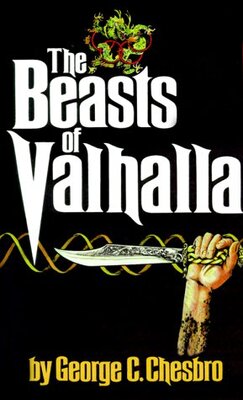
2) Have we seen the end of Mongo, or will he be back at some point? And
for that matter, what about Chant and Veil?
2 Mongo will be back. I also have plans for Chant and Veil.
3) The approach you took to taking care of the problems with the back
list seems brilliant to me. Starting your own publishing house seems like
a huge undertaking. Was it?
3. Starting our own publishing house was, indeed, a huge undertaking.
Any success we have had, I owe entirely to my wife, Robin, the President
of Apache Beach Publications. A writer herself, Robin runs the business,
and has also designed most of the new covers.
4) Any plans to publish other authors?
4. We would publish other authors in a similar situation, namely writers
with some following and a lot of their books currently out of print.
5) You have your first hardcover out with Apache Beach. What is it, and
what's it about?
5. The Keeper is about a Palestinian-American, ex-Navy Intelligence,
with a secret past and very dangerous secrets. It is possible to read
a summary, and
also the Prologue, at http://www.dangerousdwarf.com.
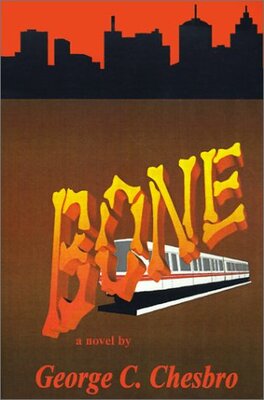 6) What do you think is the biggest problem with Publishing
today? Richard Barre was dropped, Sparkle Hayter has turned to a small publishing
house overseas. I mean, why are so many great authors being ignored?
6) What do you think is the biggest problem with Publishing
today? Richard Barre was dropped, Sparkle Hayter has turned to a small publishing
house overseas. I mean, why are so many great authors being ignored?
6. Publishing is quite different today than when I started. However,
one thing that remains constant is that non-best-selling authors are routinely
ignored.
7) What other authors do you like to read?
7. I don't read as much fiction as I used to. My model when I began was
Ross Macdonald.
8) The Mongo stories started as short stories in magazine form. (Now
collected in In The House Of Secret Enemies) Do you think the short story
format is a better way to start a series?
8. I don't know what is the best way to start a series; for a novice,
short stories are much easier to get published.
9) Besides writing, what other jobs have you had?
9. I worked 17 years as a Special Education teacher, working with the
educable mentally retarded, before I quite to write full time. After that,
when I needed money, I worked as a night security guard and a teacher
of severely disturbed, very dangerous children.
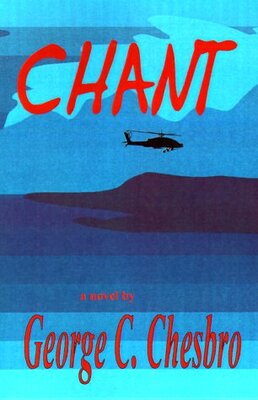 10) The first fan letter I ever wrote and got an answer to,
was to you. You answered quickly and answered questions I had. Do you like
interaction with fans? Do you think writers tend to be more approachable
than say, actors or musicians?
10) The first fan letter I ever wrote and got an answer to,
was to you. You answered quickly and answered questions I had. Do you like
interaction with fans? Do you think writers tend to be more approachable
than say, actors or musicians?
10. I have no idea how approachable other artists of any persuasion may
be. As for myself, I am always deeply appreciative that anyone should
be interested in
my work enough to buy and read it. I like to express that appreciation.
11) Do you write on a schedule, or do you wait for the mood to hit you?
And do you work from an outline, or kind of let the work guide you?
11. I write on a schedule - - early mornings, five days a week. I like
to work from an outline that is as detailed as possible (although things
may change as I get into it).
12) What do you think is more important to good writing, plot or characterization
?
12. I think both plot and characterization are important. I consider
so-called "plotless fiction" a joke.
13) In your book, Bone, a good part of the book deals with the tunnels
and areas under New York. Did you do a lot of research on this? Is it
really like that?
13. I indeed did a great deal of research for Bone, and yes, it really
is like that.
14) If you were able to go back in time and talk to yourself at 16 or
17, what advice would you have given to a young George?
14. Any advice I might have given to the 16 or 17-year-old George would
have been ignored. My next book is entitled Prism; A Memoir As Fiction;
Volume One; The Dark Engine. Read that, and you'll see what I mean.
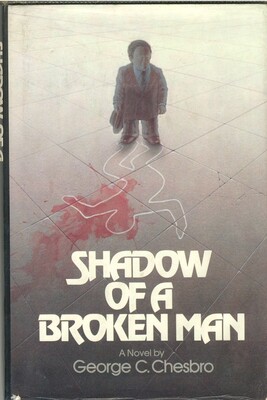 15) Some of your books seem to touch on problems
with in our society, and government. Is this intentional?
15) Some of your books seem to touch on problems
with in our society, and government. Is this intentional?
15. Touching on problems in our society and government is, indeed, intentional.
16) Your Mongo books seem to be more than just mystery. Do you find that
they appeal to a wider audience? Do they attract the fantasy readers?
16. I do have a lot of "crossover fans", fantasy and sci-fi.
17) Through out your publishing career you have always had wonderful
artwork on the cover. The first Mongo books, the mysterious press run,
and the new ones as well. How much input have you had on the art?
17. I had no input on the artwork for the original editions. Now my wife,
Robin, does the covers, so I like to think I have some input.
18) How would you describe a perfect weekend?
18. A perfect weekend is one that caps off a good week of work.
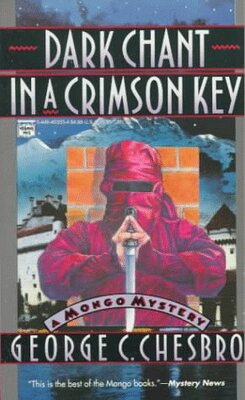 19) Because of your books, I now own and enjoy operas by Wagner. What
kind of music do you enjoy?
19) Because of your books, I now own and enjoy operas by Wagner. What
kind of music do you enjoy?
19. I'm happy to hear I introduced you to Wagner. I have very eclectic
tastes in music, although as I grow older I find I listen mostly to classical.
20) Since you first started writing, computers have come a long way.
You wrote a short story about a man fighting computers and he needed to
use punch cards ("The Paper War," Hitchcock's Mystery Magazine Jan.1971).
Since then computers have come a long way. Do you feel that computers
and the internet play a big part in writing?
20. For better or worse, computers and the internet have had an enormous
impact on writing and publishing. Apache Beach Publications couldn't exist
without
the internet.
21)What is your favorite thing you've written?
21. They're all my favorites. The Beasts of Valhalla was probably the
most difficult to conceive, consummate, and sell.
22) What's the one thing that's always in your refrigerator?
Grapefruit juice.
|

